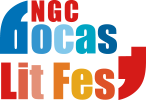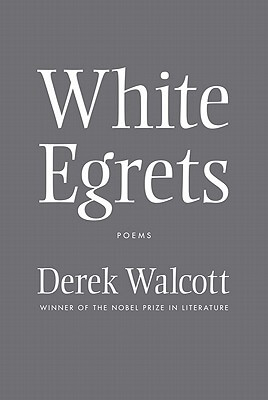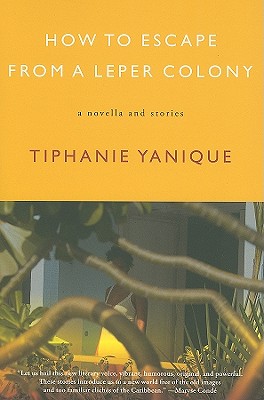The OCM Bocas Prize for Caribbean Literature
← Back to Main Awards PageThe OCM Bocas Prize for Caribbean Literature is a major award for literary books by Caribbean writers. Prizes are awarded in three categories: poetry, fiction, and literary non-fiction; with one book being named the “Overall Winner.” The prize includes an award of $10,000 for the overall winner ($3,000 for the other winners), and is sponsored by One Caribbean Media. The awards are announced during the Bocas Literary Festival which is held in Trinidad & Tobago each spring.
To be eligible for the prize, a book must have been published in the past calendar year, and written by an author born in the Caribbean or holding Caribbean citizenship. Books must also have been originally written in English. Learn more ▶.
3 Books Honored in 2011
White Egrets: Poems
A DAZZLING NEW COLLECTION FROM ONE OF THE MOST IMPORTANT POETS OF THE TWENTIETH CENTURY
In White Egrets, Derek Walcott treats the characteristic subjects of his careerthe Caribbeans complex colonial legacy, his love of the Western literary tradition, the wisdom that comes through the passing of time, the always strange joys of new love, and the sometimes terrifying beauty of the natural worldwith an intensity and drive that recall his greatest work. Through the mesmerizing repetition of theme and imagery, Walcott creates an almost surflike cadence, broadening the possibilities of rhyme and meter, poetic form and language. White Egrets is a moving new collection from one of the most important poets of the twentieth centurya celebration of the life and language of the West Indies. It is also a triumphant paean to beauty, love, art, andperhaps most surprisinglygetting older.
How To Escape From A Leper Colony: A Novella And Stories
An enthralling debut collection from a singular Caribbean voice
For a leper, many things are impossible, and many other things are easily done. Babalao Chuck said he could fly to the other side of the island and peek at the nuns bathing. And when a man with no hands claims that he can fly, you listen. The inhabitants of an island walk into the sea. A man passes a jail cells window, shouldering a wooden cross. And in the international shop of coffins, a story repeats itself, pointing toward an inevitable tragedy. If the facts of these stories are sometimes fantastical, the situations they describe are complex and all too real.
Lyrical, lush, and haunting, the prose shimmers in this nuanced debut, set mostly in the U.S. Virgin Islands. Part oral history, part postcolonial narrative, How to Escape from a Leper Colony is ultimately a loving portrait of a wholly unique place. Like Gabriel Garca Mrquez, Edwidge Danticat, and Maryse Condé before her, Tiphanie Yanique has crafted a book that is heartbreaking, hilarious, magical, and mesmerizing. An unforgettable collection.
Create Dangerously: The Immigrant Artist At Work
The Toni Morrison Lecture Series
"Create dangerously, for people who read dangerously. This is what Ive always thought it meant to be a writer. Writing, knowing in part that no matter how trivial your words may seem, someday, somewhere, someone may risk his or her life to read them."Create Dangerously
In this deeply personal book, the celebrated Haitian-American writer Edwidge Danticat reflects on art and exile, examining what it means to be an immigrant artist from a country in crisis. Inspired by Albert Camus lecture, "Create Dangerously," and combining memoir and essay, Danticat tells the stories of artists, including herself, who create despite, or because of, the horrors that drove them from their homelands and that continue to haunt them. Danticat eulogizes an aunt who guarded her familys homestead in the Haitian countryside, a cousin who died of AIDS while living in Miami as an undocumented alien, and a renowned Haitian radio journalist whose political assassination shocked the world. Danticat writes about the Haitian novelists she first read as a girl at the Brooklyn Public Library, a woman mutilated in a machete attack who became a public witness against torture, and the work of Jean-Michel Basquiat and other artists of Haitian descent. Danticat also suggests that the aftermaths of natural disasters in Haiti and the United States reveal that the countries are not as different as many Americans might like to believe.
Create Dangerously is an eloquent and moving expression of Danticats belief that immigrant artists are obliged to bear witness when their countries of origin are suffering from violence, oppression, poverty, and tragedy.





